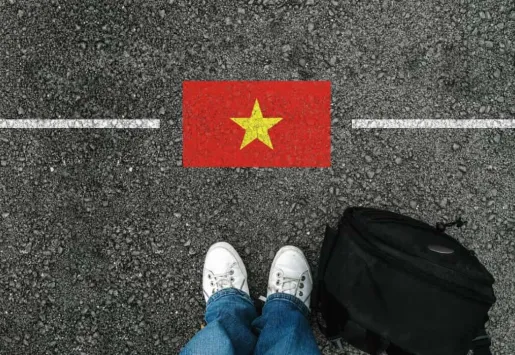
In Vietnam, the tourism authority should improve the new visa conditions for international tourism recovery. While domestic tourism is picking up again, international arrivals are showing much more modest growth. In 2022, the country welcomed only 3.5 million foreign tourists, far from the target of 5 million. Meanwhile, other Southeast Asian countries have reached or even exceeded their targets. For example, the Thai neighbor temporarily authorized visa-free stays for 45 days instead of 30 and welcomed 11.5 million foreign tourists in 2022, 1.5 million more than expected.
About twenty nationalities benefit from a visa exemption regime that allows them to go there without going through any formalities, provided that their stay lasts less than 15 days. So those who visit Vietnam for a short stay do not encounter any particular obstacles. But, on the other hand, a problem arises for visitors who wish to stay beyond this period. In this case, applying for a visa on arrival may be necessary.
Visas on arrival reserved for organized stays
Since the country's borders are reopened, obtaining a visa on arrival is more complex than before. Therefore, from now on, it is imperative to book an organized trip with a local tour operator so that the latter can request ministerial authorization allowing reception at the immigration checkpoint and visa issuance. Before Covid, the issue criteria were more flexible because it was not compulsory to book an organized trip.
However, the Vietnamese authorities have yet to announce these new conditions formally. But travelers and tourism industry professionals find that the visa on arrival has yet to be issued —something to disconcert visitors who have not been informed of these changes. To avoid disappointment, Action-Visas recommends applying for an online electronic visa before going there. The usual processing time is two days. Count 25 € for a single entry or 50 € for multiple entries.
Soon visa-free stays of up to 45 days?
However, the situation could improve in the coming weeks. Tourism professionals in Vietnam have been asking for several months to authorize visa-free stays for 30 days instead of the current 15 to make foreigners stay longer in the country. This exemption period could ultimately be extended to 45 days.
Another expected change: the electronic visa, currently valid for a stay of 30 days, could be extended to 90 days and allow multiple entries instead of a single entry provided today. Removing many obstacles should stimulate further international tourism recovery in Vietnam.














